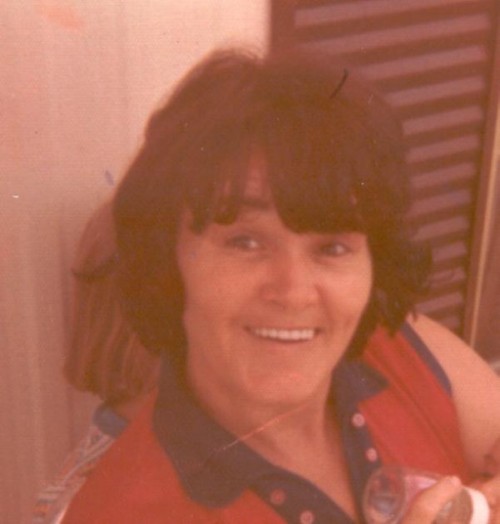
Lila Plake
August 13, 2007
Saints work on special teams errors
August 15, 2007While the indigent defense system handles 85 to 90 percent of all the criminal cases in the state, the district attorney’s office has to tackle them all.
Assistant D.A. Carlos E. Lazarus of the Terrebonne District Attorney’s Office said the District Attorney’s office is doing fine, even though it takes on even more cases than the local indigent defense system.
The Terrebonne Parish District Attorney’s Office sees an average of 1,500 cases per month. By July 7, the office was on a case count of 702 for that month.
The office sees a significant caseload spike around the time of Mardi Gras for minor crimes. And it tends to see a spike in juvenile cases over the summer.
“Juvenile crimes always goes up in the summer,” said Lazarus.
Lazarus said the caseload has gone up with the parish’s population increase, but not a lot.
Going with the reported percent of cases in the state the indigent defense system handles – 85 to 90 percent – one can conclude the local indigent defense system absorbs about 1,275 to 1,350 case per month.
Lazarus commended the work of the Terrebonne Parish Indigent Defense Board.
“The Indigent Defender Board system was broken in various parishes, including Orleans, Calcasieu and some other parishes, which resulted in a movement to have reform,” said Lazarus. “It was not broken in Terrebonne. It’s never been broken in Terrebonne. The Indigent Defender Board and the Chief Indigent Defender Tony Champagne have done a marvelous job and it [the reform] really will not affect the workings of our justice system one way or another.”
In regards to the increased funding the state has allocated toward the reform, Lazarus said he was not familiar with the internal workings of the Terrebonne Parish Indigent Defense Board’s budget.
Lazarus also explained the workings of the district attorney office’s priority list for cases, which can sometimes slow down the process of bringing defendants to trial.
He said every division provides a priority list to the local indigent defense board.
And if an indigent defense attorney’s case isn’t on the list, they shouldn’t expect it to go to trial on the specified trial date. But if it is on the list, it has a chance of making it to trial.
“We pick the cases to try off the priority list based on older cases first, if possible. It’s not written in stone, but that’s the way it works,” said Lazarus.
Only four speedy trial motions have been filed this year.
“Speedy trial motions are rarely filed by the defense,” said Lazarus.
Lazarus said he gets a report from the jail on a monthly basis detailing the number of days people awaiting trial have spent in jail. These figures include everyone awaiting trial and not just people using the indigent defense system.
He said the average time a person spends in jail awaiting trial in the parish is about 100 days. And the term “average” bears this clarification, some may spends months longer than 100 days and others may only spend 30 to 45 days in jail before pleading guilty.
“If somebody is in jail over 150 days, those people will definitely be on the priority list,” said Lazarus.
He said the highest number of days spent in jail in the parish, usually reported, runs about 400 to 415 days.
He also explained one of the things that plays a part in how much time someone spends in jail awaiting trial.
The defense may file a sanity hearing, which causes a delay of at least 90 to 120 days to have doctors conduct examinations and do reports. And if someone is found not to be able to stand trial, they are usually kept in jail until a bed becomes available in a mental institution.
Lazarus also addressed the common criticism of prosecutors having far more resources and assets than indigent defense boards.
He said the district’s attorney’s office is funded from fines and costs from traffic tickets, similarly to how the Terrebonne Parish Indigent Defense Board is funded locally.
The parish government also provides supplemental funds to the D.A.’s office.
The Terrebonne Parish Indigent Defense Board didn’t pick up its own investigator until the late ’90s. And it only has one compared to the D.A.’s office’s five.
But these five investigators do more than just investigate criminal cases. Lazarus said their guys have to do a lot more than that.
“On the surface it may look disproportionate, but I don’t really think it is, considering the obligation we have to do much more than just prosecute,” said Lazarus. “We have five investigators, but those investigators do more than just investigate criminal cases. They are active participants in law enforcement. For example, they participate in DWI checkpoints. They participate in roundups for deadbeat dads.”
The D.A.’s office uses its manpower for other things like a drug rehab program, probation officers and community service programs. All of which are designed to help reduce crime.
Lazarus also challenged the assertions D.A. offices have an advantage in the courtroom, because of their close ties to law enforcement and they expend their resources with law enforcement to prosecute someone and not necessarily prove someone innocent.
He said the D.A.’s office does not always worth with law enforcement. He said there are times when a law enforcement officer will come to his office and scream at him for dismissing a charge, because he didn’t have enough evidence to prosecute.
“We cannot ethically prosecute anybody who we feel does not … unless there is sufficient credible evidence to find him guilty beyond a reasonable doubt,” said Lazarus. “If we fail to follow that guideline, look what happened to that Duke prosecutor. He stepped all over it. He was prosecuting somebody without sufficient credible evidence.”
He said to a certain extent, a D.A.’s office philosophy is a lot different than a law enforcement officer’s philosophy. All an officer needs is probable cause.
The D.A.’s office has too look at the file and see what they are going to do, whether it is dismissing charges, reducing charges or moving someone to a diversion program.
“It’s more than just to put people in jail,” said Lazarus.
On the subject of high profile cases, Lazarus said those kind of cases impose a big strain on the D.A.’s office as far as resources.
A capital case requires many more man-hours than a drug possession case. And unless the office has a confession, most murder cases will require DNA evidence and forensic expert evidence, which is expensive.
It’s also worth noting the parish D.A.’s office doesn’t have a crime lab it can go to internally, so it has to hire experts from the outside.
The presentation of such a case is also difficult. Things like computer examinations and surveillance tape analysis and editing requires experts that have to be outsourced.
“It’s a bigger strain than your run of the mill cases,” said Lazarus. “A capital case lasts forever.”
Repeated attempts were made to contact Lafourche Parish Chief Indigent Defender and the Lafourche Parish District Attorney’s Office for this series on the indigent defense system reform.












